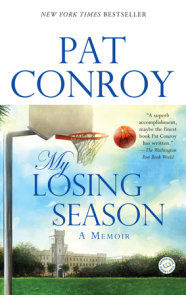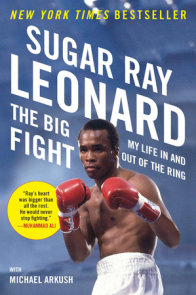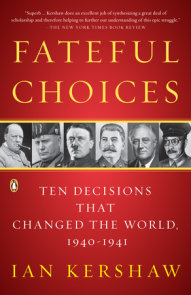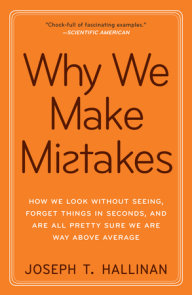READERS GUIDE
Questions and Topics for Discussion
INTRODUCTION
A freshly insightful, hopeful, and dramatic novel full of heart and life—told from the perspective of a household advice columnist, wife, and mother who is determined to finish a lifetime’s worth of tasks even though she doesn’t have a lifetime left to live.
The Household Guide to Dying is a moving, witty, and uplifting novel about Delia, who writes an acerbic and wildly popular household advice column. When Delia realizes that she is losing her long battle with cancer, she decides to organize her remaining months—and her husband and children’s future lives without her—the same way she has always ordered their household. Unlike the many faithful readers of her advice column—people who are rendered lost and confused when faced with dirty shirt collars—Delia knows just what to do. She will leave a list for her daughter’s future wedding; fill the freezer with homemade sausages, stews, and sauces; and even (maddeningly) offer her husband suggestions for a new wife. She’ll compile a lifetime’s worth of advice for her children, and she’ll even write the ultimate “Household Guide to Dying” for her fans. There is one item on her list, however, that proves too much even for “Dear Delia,” and it is the single greatest task she had set for herself. Yet just as Delia is coming to terms with this, an unexpected visitor helps her believe in her life’s worth in a way that no list ever could.
Imbued with Delia’s love for food, Jane Austen, clucking hens, and fragrant gardens, and interspersed with her secrets to making a pot of tea, removing wine stains from lace, and the ingredients to the perfect wedding cake, this is a gorgeously crafted novel that captures the reader—heart and mind—and expands our understanding of a meaningful life.
ABOUT DEBRA ADELAIDE
Debra Adelaide is the author of two previous novels in Australia including two novels, The Hotel Albatross, and Serpent Dust. She has worked as a researcher, editor and book reviewer, and has a PhD from the University of Sydney. She is presently a senior lecturer in creative writing at the University of Technology, Sydney where she lives with her husband and three children.
A CONVERSATION WITH DEBRA ADELAIDE
Q. Why does your main character, Delia, decide to write a household guide to dying in response to her impending demise?
Delia is a domestic advice columnist, and also the author of a series of successful how-to books, all called The Household Guide to the Kitchen, to the Laundry, and so forth. Pragmatic and super organized, when she realizes she is dying she believes the most useful (and possibly even fun) thing to do is to write a final guide in the series, one that has never before been attempted. Readers, however, might feel that Delia is also delaying confronting some of the issues associated with her impending death: writing the guide keeps her occupied but what else is she avoiding? I feel that she’s coping really well, if a little too manically.
Q. What is Mrs. Beeton’s Book of Household Management? Did the fact that Mrs. Beeton died at the age of twenty-eight have an ironic resonance for you?
Oh yes, indeed. The Book of Household Management is a huge compendium of domestic advice and recipes, first published in 1861. Several things about Isabella Beeton intrigued me. Firstly that, contrary to what her name and reputation have suggested, she was not some staid old mouthpiece for conservative Victorian values, but an innovative, highly well informed (largely self educated) and entrepreneurial young woman. Her book introduced a level of professionalism to the domestic front, as well as a whole generation of homemakers to new recipes, ideas and knowledge about the culinary and domestic arts. And the irony of her early death is profound: for all her skill and knowledge she was unable to save herself from septicemia, and she died leaving two small children, one just a baby. Of course this resonated strongly with the idea I already had for my character, who also dies leaving young children.
Q. As you were working on this novel, your youngest son was diagnosed with leukemia. How did his illness affect the book?
My son’s diagnosis came when I was ready to commence intensive work on the draft I had written so far. Most of the story was sketched out, and I had written about 30,000 words. After his diagnosis I couldn’t look at it for over a year. It was impossible to find the time to write, but it was also unthinkable to return to a comic novel about a woman dying of cancer when I had looked the disease in the face. But after my son had returned to school and was living what approximated a normal life again, I finally summoned up the courage. I found I could do it, because I decided to tackle it in small pieces. However I know that the novel became rather sadder in parts as a consequence. The scene where Delia leaves the hospital after deciding to have no more treatment, where she views the pediatric oncology ward, was very much drawn from my experience. While my son’s illness intervened in the writing of this novel only temporarily, I know that if he’d been diagnosed with cancer (or if anyone close to me had) earlier then I would never have contemplated writing a comic novel about dying. But the character of Delia, her voice, the story were basically there well before this, and I eventually found the courage to face it, and then continue with it. Recently, I was being examined by a liver specialist as I have had anemia for several months and needed to have my liver investigated. Of course the topic of cancer arises in such situations (especially as you get older — it seems to loom in the background of every medical complaint you have) and my response is usually dismissive, often jokey, but not because I am in denial or even insensitive (I hope!), rather because I absolutely don’t believe in worrying about such threats to your health when they are only vague, and usually unlikely. This doctor said to me, There’s nothing funny about cancer, and I know that this is true. On the other hand I also know that we retain our sense of humor at the most unexpected times.
Q. Delia goes in search of the girl who received her son’s heart after his death. What is she looking for by doing this? Do you relate to her need to find Sonny’s heart?
As the years have passed, Delia’s response to Sonny’s death has changed: at the time she was determined to cope by turning her back on the experience and the place – Amethyst – where they lived and he died, and by starting a new life with Archie. On the verge of dying she realizes this isn’t working, and when she returns to Amethyst it’s to try and hold onto the son she lost, for one last time. Compounding this is her long-term guilt over donating his heart – at the time she felt it was right; over the years she’s had doubts. And for her, the only way to reconnect with her son, however briefly, is with the girl who received his heart.
I’ve never experienced anything like this, but as a mother of course I do think about the sorts of choices we might have to make about things like this. The questions fueling my novel are in a sense very personal: How would I feel? What would I do? What would I say? Organ donation is also completely anonymous, and that anonymity is protected strongly by law. What Delia wants is some small recognition of her extraordinary gift, and the joy of seeing that this girl has survived, while her own son couldn’t. She wants to break through the anonymity that has stifled her for so long, which I can relate to. I would, if I could, like to stay in touch with the child, and its family, who may have received a gift of organ donation from my own family. There’s an extraordinary intimacy in such a gift, so it seems odd that both parties should be denied even the chance of any relationship. Of course, I rush to add that for those who need and want it, anonymity should exist and be protected. Not everyone is like me.
Q. Delia’s voyage—the writing of the guide, her desire to experience closure from a painful loss—can be seen as a spiritual one. Was this your intention?
I think her entire journey can be seen as some sort of metaphysical quest, though I’m not sure that spiritual is the right word. Unlike me, Delia is unreservedly pragmatic. While I would be happy to spend all my days in the life of the mind, by reading and writing and thinking about writing and reading; she thrives by doing practical things, and has no time for a spiritual life. When the novel commences she is in a state – ill, housebound — where she is obliged to reflect on matters that she’s suppressed. Towards the end of the novel she says it is too late for religion, though she is surprised by thoughts of an afterlife and even a god (one with a great sense of humor!). But obviously her strong connection with the word Eternity is a giveaway: she does have a sense of the afterlife, it’s just that she’s denied it for a much of her life. Perhaps this is because of Sonny’s sudden death, which has also killed something in her.
In contrast, my spiritual beliefs are best described as a broad and undirected form of theism. I cannot accept that life simply ends at death, and feel that the spiritual dimension enriches our lives immensely. That said, I have no time for dogma and doctrine, and the terrible troubles in the word that are the result of religious prejudice and fervor. I was brought up in the Anglican church and still value its traditions and ceremonies, even if I can’t accept all its teachings. I love the church’s rituals, and I treasure the poetry of its language (before they ruined it by ‘modernization’).
Q. Parental guilt is a central theme. What are some of the types of guilt Delia experiences that are common to all parents, dying or not?
I think guilt is one of the least honored of parental feelings. Someone once told me that as a parent you’ll always feel guilty for one reason or another, so why not embrace the idea early on, instead of resisting it? Delia is guilty for being sick, for dying, for losing a child, for being an irresponsible parent, for being too caring or smothering, for not caring enough, for being estranged from her own mother, for being angry with her children, for not being angry or assertive enough, for swearing at them …. the reasons go on and on.
Q. How can a book called The Household Guide to Dying be a novel about life? And often funny, too?
Perhaps death in a way is the object of life — not that we tend to consider this until the very end (and not that I have an especially morbid nature). But in part the novel explores what it means to live, and how much living one can extract from ordinary, everyday existence, when the focus is sharpened by the threat of early death. And as for the humorous aspects of the book, I do have a quirky sense of the comic, and I wanted to see how far I could exploit that in fiction with this subject matter. In the end it wasn’t hard to write humorously about many aspects of the narrator’s illness and imminent death, in fact it seemed natural. Of course, I expect that the humor helps avoid the underlying issues, which are fairly grim.
Q. Delia comes up with some ideas that are quite unconventional, to say the least, in her pre-death planning. What are some of the more outrageous ones?
It’s true: at times she tries deliberately to shock or unsettle people, including her family. At other times she is genuinely pushing an idea that she thinks is normal, but which strikes others as bizarre. She considers posing as a corpse (a pretty one) in a coffin for the cover of her proposed guide to dying; she orders her own coffin, then asks her family members to decorate it; she makes blood sausages from her own blood in a well-meant but misfired attempt to offer her family something essentially and uniquely hers before she is gone forever; she even tries to organize a new wife for her beloved husband. Fortunately, she relinquishes most of these nutty ideas before the end.Q. Delia is known for her tart, witty responses to readers’ queries in her advice column. But she also provides a lot of solid information. How did you come up with some of her most useful and amusing household hints?
I made them up. It’s not that hard, although perhaps I do have more domestic capability than other people. And some of the advice is sound, despite Delia’s quirky attitude. For instance, the advice on how to boil a soft egg, or make a cup of tea. Years ago there was an odd page in one of the Sunday newspapers here, full of quirky home advice, though from readers, not from a columnist. I would often laugh out loud reading this even though it wasn’t meant to be funny. Correspondents would regularly write in, often panicked, saying things like, “Help, I’ve lost the recipe for my favorite ginger cake/butter biscuits/whatever – I’ve been making it for 20 years.” And I would laugh because I’d wonder, if they’d been making it for 20 years, how come they still needed the recipe? Another regular contributor would write in with hints on what to do with the weirdest bits of rubbish; for instance the empty plastic cartridge left when all the disposable razor blades were used up (good for soap dishes and under pot plants, apparently); or how to make a pie base from stale bread crusts (are we really that poor ?!). They also seemed to have the oddest names, and come from the most obscure places around the state. The queries would – to me – be so basic, and some of the responses so weird. I think that I stored that up and it came out in Delia’s voice. I think, too, that I was exploiting something I’ve detected in older people –mainly women —which is a slight contempt for the domestically disabled coupled with a perverse refusal to pass on lore and advice. That is, the person who scorns your inability to produce a good sponge cake, but then won’t help you with it, as if that’s too much of a concession or something. (I hope I’m not becoming that sort of older person myself!)
Q. What kind of research did you do for this book?
Not a great deal of research actually. Research in fiction needs to be used sparingly, I find. I attended an autopsy some years back and wrote up very detailed notes on that, even though at the time I had no idea how the scene might fit into the novel. I researched some aspects of coffin manufacture. The weirdest — and saddest — research came quite unexpectedly: just when I finished the first complete draft of the novel, three people I knew died, two from cancer. In one week I attended three funerals. That was the sort of research I would rather not have done.
Q. The music of Elvis Presley is also prominent in this story. Is he a particular favorite of yours, or just an enthusiasm of your characters?
The richness and maturity of his voice always fascinates me. I think sometimes we forget that Elvis was a voice first, and a celebrity next. But I’m also slightly cynical about the cult of Elvis – and this comes out in the novel. And I’ll confess that I have, just as Delia, instructed ‘Always on My Mind’ to be performed or played at my own funeral, if possible. It’s a love song but appropriate, I think, full of tenderness along with the regret, and expressing a general feeling that while we don’t always do the right thing, we always intend to. I love that idea. It captures much of ordinary human yearning, our desire thwarted by our faulty natures.
Q. Delia claims that there is a connection between cleaning and creativity, which many women (and men) will be startled to hear. What connection does she see?
This to me is perfectly logical: cleaning and other domestic chores (like ironing) are totally mindless tasks, and that frees up the mind and the imagination. It could be sweeping leaves or chopping firewood or painting the fence. Or lawnmowing. Many writers advocate walking, which does kindle the imagination and is excellent for problem solving. But I think these other activities work too.
Q. When and how did you decide to become a writer?
When I was growing up there was no culture — around me at least — to suggest that writing, in any form, was a possibility. I never met or even heard of writers. Of course there were authors behind the books, but they had no personalities, no presence, and so weren’t real. I always read and always wanted to but, while you were expected to be a good reader, you weren’t expected to indulge yourself in reading, especially novels. Children who read tend to want to write but although I wrote (terrible adolescent poetry and painful diary entries) it never occurred to me to be a writer. My shift to becoming a creative, as opposed to academic, writer occurred on 29 May 1992, which was the day I received a letter advising me that I’d been rejected for an Australian Research Committee postdoctoral award. The rejection was due to an academic who had agreed to referee my project but instead criticized it, thus ensuring its instant death in the hands of the assessment committee. I remember thinking, Bastard. Okay, I’ll write that novel instead. Bastard. But I’ll show you … Up late that night, I was still seething about it but also thinking about the novel I’d been planning when I experienced the first labor pains of my second child. My daughter, Ellen, was born several hours later, early the next morning. The novel, which became The Hotel Albatross, took a little longer to produce.
DISCUSSION QUESTIONS
In the novel, Debra Adelaide approaches a subject that could be sad by using wit and humor. For example, Delia’s letters to her fans are often very funny, but even more important, Delia herself might occasionally be rueful, but she refuses to be maudlin. And some of her ideas seem almost perverse—such as her idea for her book cover. Did the use of humor surprise you? Did it seem like a realistic response to the circumstances?
Mrs. Beeton is a great hero of Delia’s—she wrote the first serious book on housekeeping, and Delia has great respect for the importance of keeping house. Is keeping house important to you? Is it a source of pleasure, or guilt, or both?
Delia is extremely competent—hence her job as an advice columnist. She can also be tremendously controlling as a result, and over the course of her final months, she comes to realize that she has to relinquish control. Discuss the ways in which the same qualities that make us strong can also be our greatest weaknesses, and the greatest source of aggravation for those around us.
Delia’s chickens are named after each of the Bennett sisters from Jane Austen’s Pride And Prejudice, and Delia has some very interesting thoughts on Mrs. Bennett. Did you agree?
One of Delia’s most important tasks is to leave behind boxes for her daughters and husband containing special items. What could you imagine leaving behind for your loved ones?
Related to the above, Delia’s hope in leaving behind the boxes is for her husband and children to feel encouraged to move on with their lives. Delia doesn’t leave a box for her mother. Why is that, and what does the author seem to be suggesting about the essential difference between motherhood and other relationships?
Delia refuses to die quietly—she insists on confronting death head-on, from her research into coffins to her preparations for her family. Did you find her approach to her last days sympathetic?
Instead of telling the novel in a purely chronological fashion, the author decides to gradually dole out the story of Delia’s time with her first child over the course of the novel. Why do you think she made this decision, and how did it help you understand Delia’s actions during her final months?
Were you surprised by the real reason for Delia’s trip to Amethyst?
When Delia is a pregnant teenager, she leaves home to escape her mother’s disapproval. But years later, she and her mother are reunited over the loss of Delia’s first child. In what ways is this a theme throughout the novel—that certain ties are eternal?
How does Delia’s mother’s experience in losing her daughter echo Delia’s own experience in saying goodbye to Sonny? How are all of these various farewells then brought together in the last pages of the novel?
When Delia finally meets the woman who received Sonny’s heart, we learn the ways in which Sonny has become a part of her. How did this fit in thematically with the rest of the novel?
The novel focuses almost entirely on Delia’s experiences—the author doesn’t spend much time delving into what Delia’s daughters or husband might be feeling. Why do you think that is? Did it bother you that the novel didn’t concern itself more with the feelings of Delia’s family members? What does this say about the solitariness of Delia’s journey?
Did the novel impact your understanding of what the experience of dying might be like? In what ways? Did you find the final pages uplifting, sad, peaceful? Did it ultimately feel convincing?
Delia spends a good bit of time imagining what book she wants to be reading at the end. What would you choose for your last book?




















